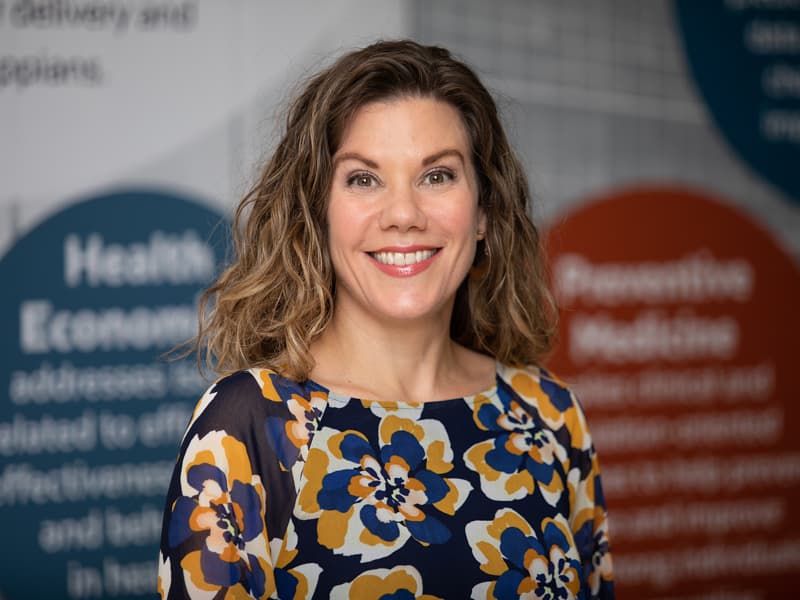UMMC chosen to lead one of five national hubs for community-led health care research

The National Institutes of Health recently selected the University of Mississippi Medical Center to host a community-based research collaborative led by Dr. Caroline Compretta, assistant vice chancellor for research.
UMMC will lead the Southeast Center for Health Achievement and Growth in Equity, or SEACHANGE, one of five new research hubs across the United States that will receive $6.9 million over the next five years from the NIH Common Fund in collaboration with the National Cancer Institute to support community-led health research.
In addition to UMMC, the other established research hubs are located at Yale University; the University of Michigan, Ann Arbor; the University of Maryland, Baltimore; and the New York University Grossman School of Medicine.
SEACHANGE, led by Compretta as principal investigator, is represented by team members from seven universities across Louisiana, Mississippi and Alabama including UMMC, Mississippi State University, Tougaloo College, the University of Southern Mississippi, the University of Alabama at Birmingham, Tulane University and Louisiana State University.
SEACHANGE focuses on the progressive stages and interconnected nature of chronic diseases—from their risk factors to full manifestation and complications. By examining upstream causes and implementing preventive strategies, the collaborative aims to "move the needle" in health disparities. This involves addressing structural factors in communities, such as access to education, health care and social contexts that shape health outcomes and contribute to ongoing disparities.
Its multidisciplinary expert panel features professionals from six additional institutions from across the country: Tuskegee University, the Southern Poverty Law Center, North Carolina Central University, the University of Central Arkansas, Brown University and the Mayo Clinic.
"We're building on the strong networks and relationships we've developed over the years," said Compretta. "The multidisciplinary expert panel we assembled for SEACHANGE is both diverse and comprehensive. From research ethicists to food scholars, community engagement experts to implementation scientists, we have an exceptional team of experienced and brilliant individuals working together on this project."
“It was an honor to be selected for funding along with such a prestigious group of institutions,” said Mary Margaret Saulters, project manager in the Department of Preventative Medicine. “I think this speaks to the strength of UMMC’s research community, and our growing commitment to advancing the science around health disparities and community-led research.”
The research hub will work together with Community Partnerships to Advance Science for Society Coordinating Center, or ComPASS, to build research capacity and develop sustainable interventional treatment models for Community-Led, Health Equity Structural Intervention, or CHESI, projects.
“The ComPASS Initiative works to revolutionize community-engaged research by directly funding CHESIs,” said Compretta. “The regional hubs were created to help ensure each CHESI has the tools they need to succeed and to create the research infrastructure and training required to produce robust scientific findings that can be used to help others. "When we wrote the proposal, we wanted to build upon our successful history of community-engaged research here in Mississippi," she added. "We can't move the needle in health unless we have community buy-in—both by educating the public about science and health care strategies in addition to allowing community voices to guide the research process."
Compretta said that she is proud that the Medical Center has the opportunity to create meaningful change by addressing health care disparities at both the individual and societal levels. It is equally important, she said, to be able to document those positive impacts to community health by publishing reliable, thorough research.
"In collaboration with institutions and community organizations, we are moving the needle in health research and outcomes by placing community voices at the center,” said Compretta. “We are letting them guide conversations about their own health and bringing in resources from national scholars and the NIH to support and uplift them. Together, we are working to improve health outcomes in a meaningful way."


